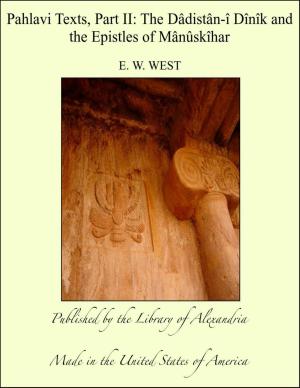The Valleys of Tirol: Their Traditions and Customs and How to Visit Them
Nonfiction, Religion & Spirituality, New Age, History, Fiction & Literature| Author: | R. H. Busk | ISBN: | 9781465583482 |
| Publisher: | Library of Alexandria | Publication: | March 8, 2015 |
| Imprint: | Language: | English |
| Author: | R. H. Busk |
| ISBN: | 9781465583482 |
| Publisher: | Library of Alexandria |
| Publication: | March 8, 2015 |
| Imprint: | |
| Language: | English |
There are none who know Tirol but are forward to express regret that so picturesque and so primitive a country should be as yet, comparatively with other tracks of travel, so little opened up to the dilettante explorer. It is quite true, on the other hand, that just in proportion as a country becomes better known, it loses, little by little, its merit of being primitive and even picturesque. Intercourse with the world beyond the mountains naturally sweeps away the idiosyncracies of the mountaineers; and though the trail of progress which the civilized tourist leaves behind him cannot absolutely obliterate the actual configuration of the country, yet its original characteristics must inevitably be modified by the changes which his visits almost insensibly occasion. The new traditions which he brings with him of vast manufacturing enterprise and rapid commercial success cannot but replace in the minds of the people the old traditions of the fire-side and the Filò, with their dreams of treasure-granting dwarfs and the Bergsegen dependent on prayer. The uniform erections of a monster Hotel Company, ‘convenient to the Railway Station,’ supersede the frescoed or timbered hostelry perched on high to receive the wayfarer at his weariest. The giant mill-chimneys, which sooner or later spring up from seed unwittingly scattered by the way-side, not only mar the landscape with their intrinsic deformity, but actually strip the mountains of their natural covering, and convert wooded slopes into grey and barren wastes; just as the shriek of the whistle overpowers the Jödel-call, and the barrel-organ supersedes the zitther and the guitar.
There are none who know Tirol but are forward to express regret that so picturesque and so primitive a country should be as yet, comparatively with other tracks of travel, so little opened up to the dilettante explorer. It is quite true, on the other hand, that just in proportion as a country becomes better known, it loses, little by little, its merit of being primitive and even picturesque. Intercourse with the world beyond the mountains naturally sweeps away the idiosyncracies of the mountaineers; and though the trail of progress which the civilized tourist leaves behind him cannot absolutely obliterate the actual configuration of the country, yet its original characteristics must inevitably be modified by the changes which his visits almost insensibly occasion. The new traditions which he brings with him of vast manufacturing enterprise and rapid commercial success cannot but replace in the minds of the people the old traditions of the fire-side and the Filò, with their dreams of treasure-granting dwarfs and the Bergsegen dependent on prayer. The uniform erections of a monster Hotel Company, ‘convenient to the Railway Station,’ supersede the frescoed or timbered hostelry perched on high to receive the wayfarer at his weariest. The giant mill-chimneys, which sooner or later spring up from seed unwittingly scattered by the way-side, not only mar the landscape with their intrinsic deformity, but actually strip the mountains of their natural covering, and convert wooded slopes into grey and barren wastes; just as the shriek of the whistle overpowers the Jödel-call, and the barrel-organ supersedes the zitther and the guitar.















